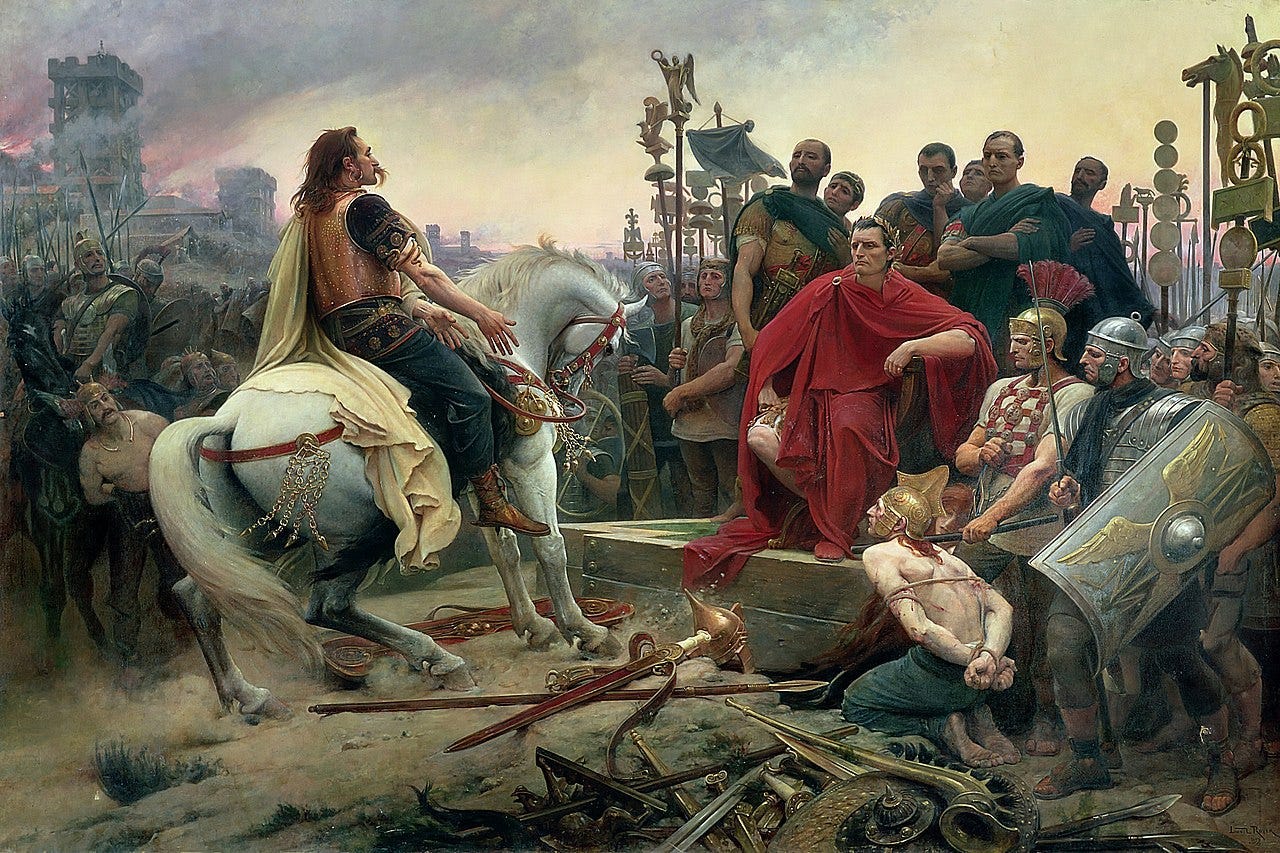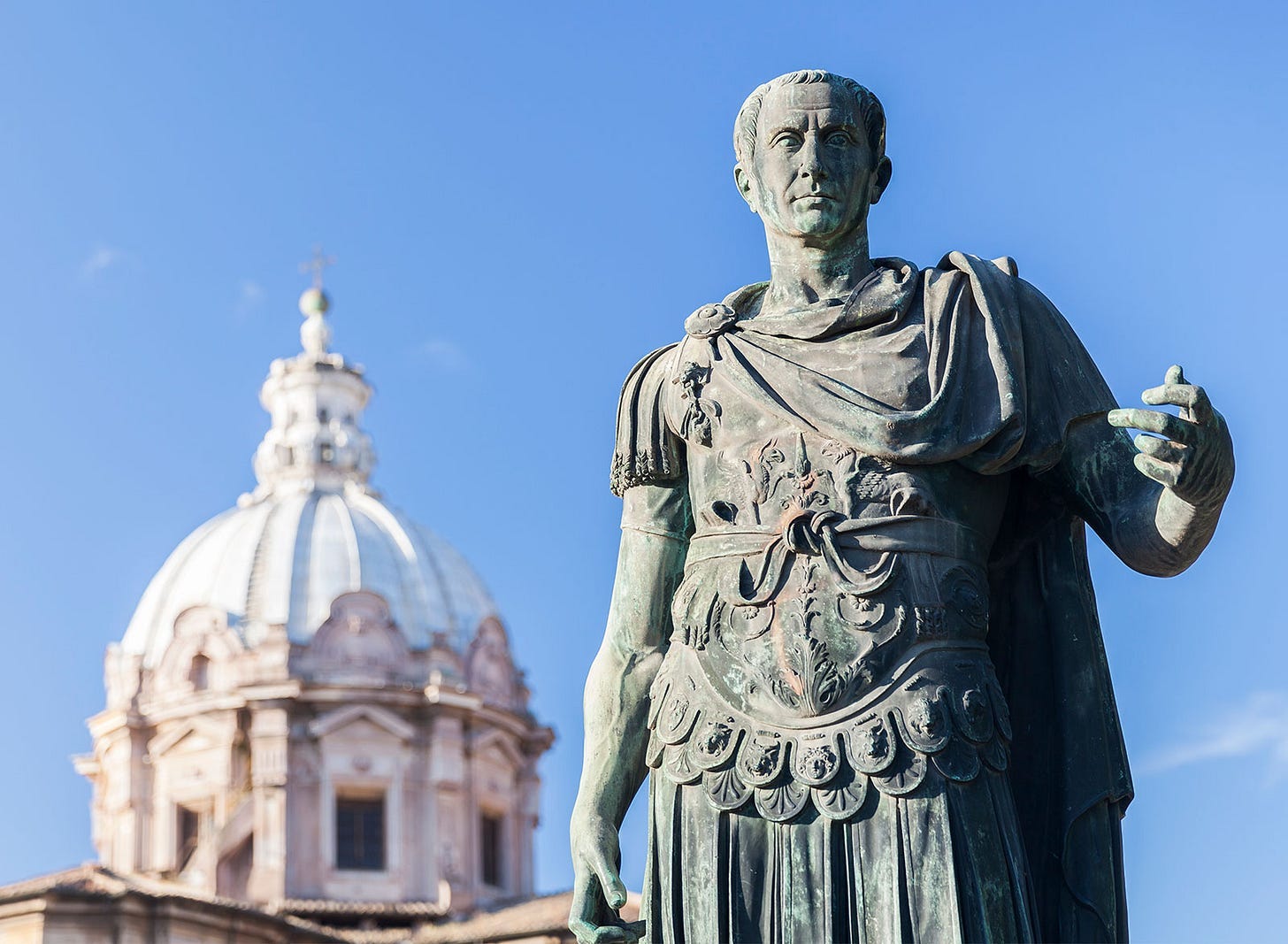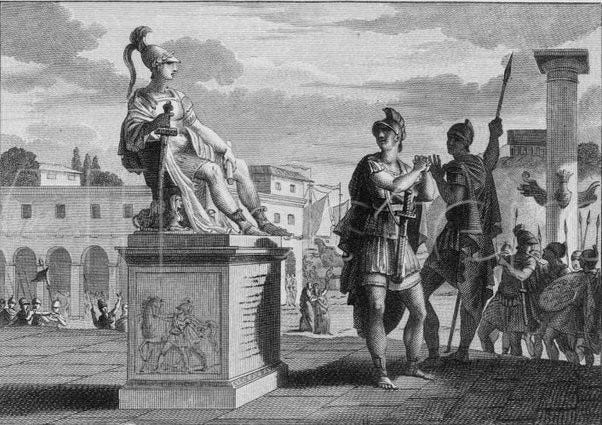
“The Ides of March are come.”
“Ay, Caesar; but not yet gone.”
~ From Julius Caesar, by William Shakespeare (c. 1564 - 1616)
Joel Bowman with today’s Note From the End of the World: Buenos Aires, Argentina…
The seasons have turned, dear reader. The late summer haze fades from memory as fall’s first cooling breezes sweep through the capital city. One by one, the leaves turn from green to yellow to orange to violet brown, carpeting the cobblestone streets. The Paris of the South wears its autumnal colors well.
Peering out at the other Ends of the World from our southerly perch, we note that today marks something of an inauspicious moment in history… when Rome’s very first dictator was literally stabbed in the back on the floor of the senate. This singular conspiracy gave historians centuries worth of conjecture and debate over whether this event was a good or bad thing.
Indeed, Caesar’s reply to Brutus, per Shakespeare, has gone down as one of the most famous lines of betrayal in history:
“Et tu, Brute?
(Though personally, we prefer Seutonius’s version: “Kai su teknon?” or “You too, child?”)
To commemorate this day, our friends (read: Dear Wifey) over at Classical Wisdom are offering a rare 15% off for their 15th of March Ides Special. As readers of these Notes are no doubt aware, we have rather a soft spot for the classics and the myriad lessons we can learn from studying those who came before us.
From the rise and fall of empires… the corruption of currency to the great bread and circuses… from the corruption of the youth, the worshipping false prophets and good ol’ fashioned hubris… the ancients have a lot to teach us about our condition… human, all to human, as it is.
That in mind, we invite you to enjoy a special guest column from Classical Wisdom today… and to take advantage of their 15% off special in honor of the Ides, which have come… but not yet passed. (The offer expires this weekend.) More, below…
Caesar’s Setbacks: Triumphs over Adversity
By Ash G
Even from early adulthood, Caesar faced a very real possibility of death. Sulla, the rival of his uncle Marius, became the leader of Rome, and he was executing everyone remotely linked to Marius. Young Caesar was forced to leave Rome and live off in exile for some time until Sulla was lobbied to pardon him.
Caesar came back to Rome a poor man, as even though he was able to keep his head on his neck, all his personal and ancestral belongings were confiscated. This would prove to be one of the basic dynamics that would haunt him for his entire life, and at the same time, drive him to attain his legendary status in history.
Yes, his prime motivation to go on to that daring suicidal-cum-genocidal conquest of Gaul was to pay off his debt that he had been taking all his life to compensate for the losses of his properties. If not, he faced imprisonment at home.
His second-biggest source of adversity was his relationship with his peers or, more aptly put, his enemies.
As it would turn out, this was almost everyone.
He had many enemies. He was hated and mocked with almost everything he did. Any individual would obviously get angry if he’s called “every man’s woman in Rome.“ He was rumoured to have been in a homosexual relationship with the King of Bithynia. “Queen of Bithynia,” they would call him in Rome.
These kinds of allegations were fairly common in ancient Rome as a political tool, but Caesar’s reaction made it far worse. He vehemently denied these rumours, and would go to great lengths to prove he was the “ladies’ man in Rome.” He would humiliate his accusers like Cato by sleeping with their sisters and disclosing their love letters in public. This would earn him evergreen enemies in the Senate of Rome, who would ultimately give him no option but to declare war on the Senate after his term as Governor of Gaul and his alliance with Pompey ended.
He was ordered by the Senate to come back to Rome as a private citizen and face justice for his illegal warfare and numerous other crimes. He again faced imprisonment or death. He was thus forced to choose to go back to Rome at the head of his army; a move that many at Rome translated as yet another criminal act.
Yet “the die was cast” for Caesar. This decision would kick-start a series of developments in the form of civil war that would result in Caesar becoming the most powerful man in Rome.
During the civil war, most of his trusted lieutenants and allies would leave him to join the Senate. Marcus Brutus, who he considered to be his son, and Titus Labienus, his most celebrated cavalry commander, both turned against him. Although he was able to defeat his enemies during the civil war and pardoned those who he considered as friends, his difficult relationship with his peers would not subside throughout his life.
Caesar wasn’t raised to become a military genius by birth like Alexander the Great. Yet, arguably, he surpassed the glory of Alexander.
Caesar reportedly used to ponder how he had wasted his entire life when he used to look at Alexander the Great’s statues because, unlike Alexander, he only got his first major military command when he was at the ripe age of 40. For the most part of his life, he himself didn’t know that he was destined to change the very history of Western civilization.
In hindsight, if Caesar was with us today, he would tell us how his adversities made him the legend he is. He would probably tell us that destiny has its mysterious ways. The adversities he initially wished weren’t a part of his life eventually led him to unprecedented greatness. As Marcus Aurelius would say:
“The impediment to action advances action, what stands in the way becomes the way.”









Joel, This is a good quote for today, one I told my sons about over the years.
"Let me have men about me that are fat; Sleek-headed men and such as sleep a-nights. Yond Cassius has a lean and hungry look; He thinks too much: such men are dangerous."
Joel, Grew up hearing "Beware the ides of March", always thought it was a bad omen like Friday the thirteenth. Thanks. And it was nice to have the history of who Julius Caesar to boot.